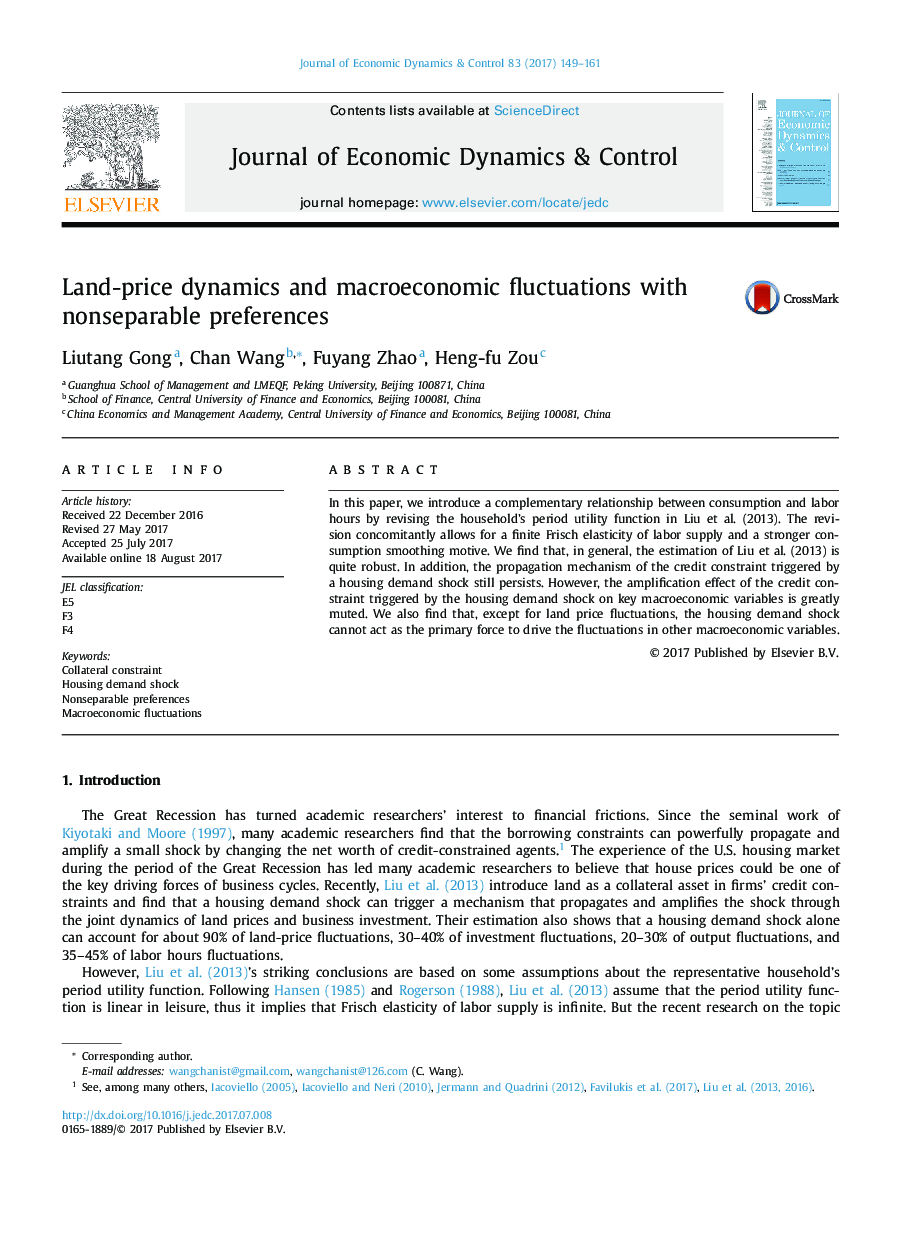| Article ID | Journal | Published Year | Pages | File Type |
|---|---|---|---|---|
| 5097963 | Journal of Economic Dynamics and Control | 2017 | 13 Pages |
Abstract
In this paper, we introduce a complementary relationship between consumption and labor hours by revising the household's period utility function in Liu et al. (2013). The revision concomitantly allows for a finite Frisch elasticity of labor supply and a stronger consumption smoothing motive. We find that, in general, the estimation of Liu et al. (2013) is quite robust. In addition, the propagation mechanism of the credit constraint triggered by a housing demand shock still persists. However, the amplification effect of the credit constraint triggered by the housing demand shock on key macroeconomic variables is greatly muted. We also find that, except for land price fluctuations, the housing demand shock cannot act as the primary force to drive the fluctuations in other macroeconomic variables.
Related Topics
Physical Sciences and Engineering
Mathematics
Control and Optimization
Authors
Liutang Gong, Chan Wang, Fuyang Zhao, Heng-fu Zou,
